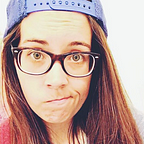The Alignist Box Seeks to Bridge Divides Through Empathy and Reading
Beenish Ahmed loves books. She also loves to travel. And she loves reading books about the places she’s traveling to. Beenish is an accomplished journalist and author who believes that books have the power to bring insight into experiences much different than our own. Books can help us understand and learn more about the world around us, which is something we desperately need.
Beenish created The Alignist Box — “an empathy-based understanding of the world, delivered to your doorstep.” The subscription box contains not just a book, but a full experience along with it.
“Each edition contains a novel from a different corner of the world, plus a “informational roadmap” that will connect the characters’ experiences to lived realities. All subscribers will get invited to a live author Q&A. A premium edition will totally transport you to the world of the novel with authentic local recipes, original illustrations, and fair trade artisanal goods.”
We spoke with Beenish via email about books, empathy, and how they can work together to make the world a better place.
SG: What inspired you to create The Alignist?
Beenish Ahmed: I’m a journalist who focuses on international news. I got frustrated with the dwindling funds for international reporting and dwindling attention spans for the sort of human stories I cover, and I started to think about how I could do things better — in a way that wouldn’t just mean more stuff on the internet.
The Alignist subscription is a way to reach people where they are and not only inform them about places they may never visit, but give them a reason to care about them.
SG: Why do you think empathy is such an important quality to have?
BA: We live in a world that’s more interconnected than ever, and yet there’s a lot of reasons why we often feel like we’re worlds apart from each other. Especially now, there’s a sense that someone from Syria, for example, could never fully belong in Syracuse. The best tool we have to break down those divides is empathy. But empathy requires understanding.
You can’t feel for someone you don’t know the first thing about. That’s where books come in.
Literature has this magical ability to make you understand what life is like for someone completely different than you. A good book gives you an in to another world. You start to care about its characters — and then maybe you think about people they represent differently.
SG: What countries have you visited and what’s the biggest lesson you’ve learned in your travels?
BA: I’ve been lucky enough to travel a lot as a person, and I’ve been to several different countries including Kenya, Malawi, Pakistan, the U.A.E., and Haiti as a journalist.
Being a journalist is amazing because it basically means I get to ask questions for a living. I’ve realized that we’re all curious about the lives of others, but we’re sometimes too afraid to make connections.
When I was on a reporting trip in Haiti, for example, I met a few tourists and aid workers who asked me all about what Haitians are like. I wanted to say, “You’re surrounded by Haitians — why not talk to them and see for yourself?” A lot of people travel to experience something, but hesitate when it comes to actually getting to know people in new places. What I’ve learned from reporting is people are more willing to talk to you than you might think. I report on some pretty personal stuff around religion and sexuality and have found that people are generally pretty open. Asking about less sensitive stuff isn’t ever so bad.
SG: What’s your favorite book right now?
BA: This is always the most impossible question for me! Luckily (as is usually the case!) I happen to be reading an incredible book right now called The Gangster We Are All Looking For. It follows a family that fled war-torn Vietnam and made its way to the U.S. as “boat people.” The characters are forced to navigate a new landscape while pushing horrific memories out of their paths. Even though it considers a very different context, it makes me think a lot about the refugees who are being denied asylum in the U.S., including those whose [countries] destroyed by wars the U.S. helped fight. It’s a really mesmerizing book that explores an experience we read a lot about on the news but might not understand the depth of through articles alone.
SG: What advice would you give to your 12-year-old self?
BA: I would tell myself to just go for it more. I’ve always been an ideas person, but I gave up pursuing a lot of what I thought up because everything seemed impossible or maybe just uncool. I can remember so many grand plans I barely ever hatched: I made a few pages of a comic book and then quit, I outlined a play I never wrote, I took a few cool photos and then just stopped. I’m sure everyone’s past is littered with a million false starts like that, and maybe that’s just how it is, but I can’t help but look at people whose follow through led to such incredible heights. So many of them started with their pursuits at a young age. It makes me wonder what I could have done had I tried just a tiny bit more. That’s sort of where this project comes from. A desire to stick something out and see what comes of it.
Maybe it’ll go nowhere but maybe it’ll take me on an amazing journey. There’s really only ever one way to find out.
Thank you Beenish, for believing that books and knowledge can help bridge the divides between us. Find out more about The Alignist Box and how to get one for yourself by checking out their website.
